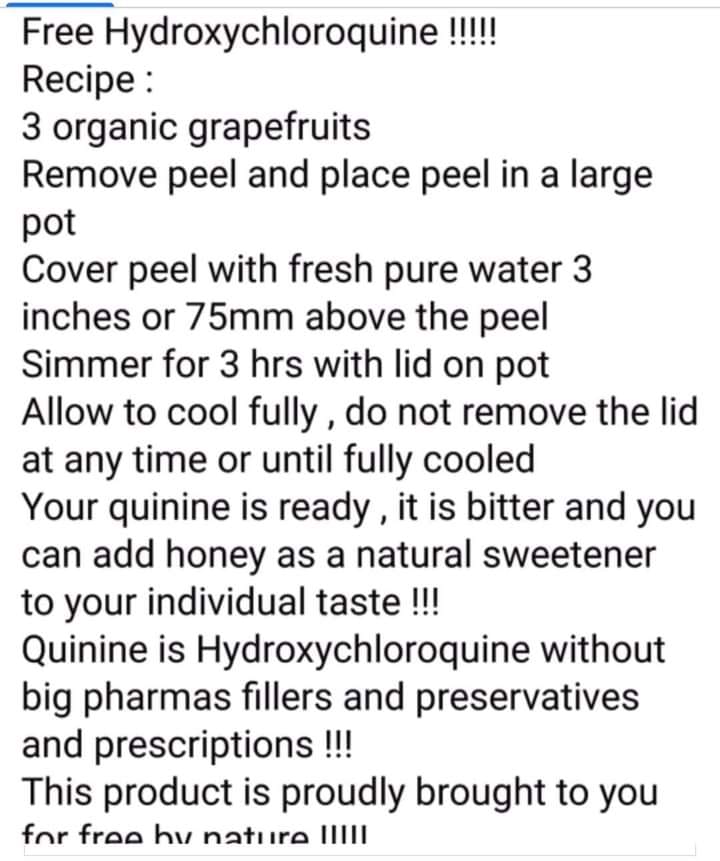
I was sent the above graphic and asked if I knew anything of it so I went looking and found some supporting data.
If you are unable to get Hydroxychloroquine (here in OZ it is an illegal treatment for COVID-19) keep this in mind. As per the working protocol, the zinc supplement and the antibiotic would need to be administered concurrently.
Obviously best done under medical supervision but better saving someone by using this without medical supervision than losing them.
Unfortunately I do not know how much quinine is in the result of this concoction and it would obviously not be standardised as it would vary from batch to batch.
Will add to this as more data comes to hand.
Here are the references I found.
Quinine is a natural white crystalline alkaloid. Quinine or Tonic water is a good bitter and helps with digestion. It also helps to control bacteria, pain, fungus, inflammation, and stress. It also has a muscle relaxing agent and works well to treat leg cramps.
Quinine is naturally found in the cinchona tree in the forests of South America and has been used successfully to treat malaria malaria. It is also found in the rinds of citrus fruits like grapefruits and bitter lemons.
Quinine has many uses and applications.It is analgesic, anesthetic, antiarrhythmic, antibacterial, antimalarial, antimicrobial, antiparasitic, antipyretic, antiseptic, antispasmodic, antiviral, astringent, bactericide, cytotoxic, febrifuge, fungicide, insecticide, nervine, stomachic, tonic.
To make quinine water from grapefruit rind:
Take the rind of 2-3 grapefruits. Take the peel only and cover it with water about 3 inches above the peels. Let it simmer for about 2 hours. Sweeten the tea with honey or sugar since it will be bitter. Take 1 tablespoon every couple of hours to bring up the phlegm from your lungs. Discontinue as soon as you get better.
https://raysolution.blogspot.com/2012/04/how-i-discovered-benefits-of-quinine.html
The essential oils found in grap[efruit are produced and stored in the peel. The most predominant oil – limonene, or D-limonene – is often used to add flavor and fragrance to various foods. Limonene exhibits potent anti-inflammatory abilities, according to the July 2013 issue of Life Sciences.
https://www.livestrong.com/article/114945-grapefruit-peel-benefits/
Quercetin
Quercetin is a powerful immune booster and broad-spectrum antiviral. It also inhibits the release of pro-inflammatory cytokines, which may be beneficial since serious COVID-19 infection and subsequent death appears to be due to cytokine storm activity. A derivative of quercetin has been shown to provide broad-spectrum protection against a wide range of viruses, including SARS.
